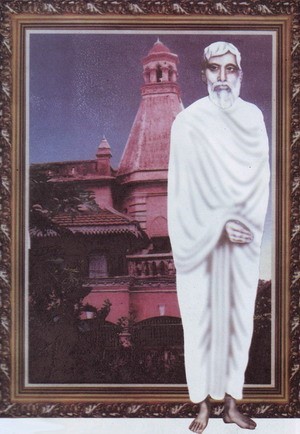Talk:Sādhu Nāg Mahāśaya – The Karma Yogī Householder
By Vishal Agarwal
Durgācaraṇa Nāg, later revered as Sādhu Nāg Mahāśaya, was born on 21 August 1846 at Deobhog in the Nārāyaṇagañj district of present-day Bangladesh. His mother passed away when he was eight, and he was raised by his father and aunt, who nurtured his spiritual nature by narrating stories from Hindu scriptures.
He studied medicine and became a physician, a lucrative profession in those days, yet he lived in utmost simplicity. He disliked luxury, preferring to walk rather than use carriages, and wore only simple clothes. When his father once bought him expensive garments, he gently said, “Instead of spending on me, you could have helped the poor.”
Nag Mahāśaya treated poor patients without charge, even covering their travel expenses. Many anecdotes highlight his compassion: once, seeing a patient shivering in winter, he removed his own shawl and wrapped it around him; another time, he gifted his own cot to a sick man who had no bed. When a child under his care died despite his best efforts, instead of demanding payment, he left weeping, saying, “I am sorry I could not save your only child.”
He practiced the Hindu principle of atithi devo bhava—treating guests as Bhagavān Himself. Even when ill, he would not let anyone leave without food or drink. On one occasion, when guests stayed overnight during heavy rains, he and his wife vacated their only dry room to give comfort to the guests, while they themselves slept under a leaking roof.
Nag Mahāśaya’s honesty was legendary. When a wealthy family tried to pay him generously, he returned the excess, saying, “You owe me only twenty rupees—two per day plus six for medicines. I cannot take more.” He did all his own work, refusing servants, and when crossing rivers, he would row the ferry himself, yet still paid the boatman’s fee.
A strict vegetarian, he was deeply compassionate toward all beings. Once, seeing a British officer shooting birds, he boldly scolded him, snatched away the gun, and later returned it through a worker. Hearing of Nag Mahāśaya’s saintly character, the officer abandoned thoughts of retaliation. Near his home, he would often buy fish from fishermen only to release them back into the pond.
Swāmī Rāmakṛṣṇa Paramahaṃsa regarded Nag Mahāśaya as an ideal gṛhastha-sādhu, like Rājā Janaka, living a detached spiritual life even as a householder. Swāmī Vivekānanda once remarked that among all the disciples of Rāmakṛṣṇa, it was Nag Mahāśaya alone who fully grasped their Guru’s message.
Sādhu Nāg Mahāśaya attained mahāsamādhi on 27 December 1899. Today, a shrine stands at his ancestral home in Deobhog, honoring his life of simplicity, compassion, and karma-yoga.

